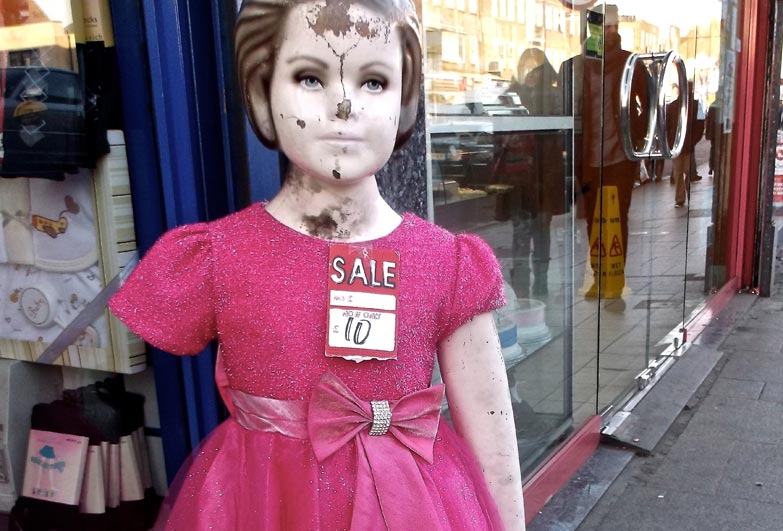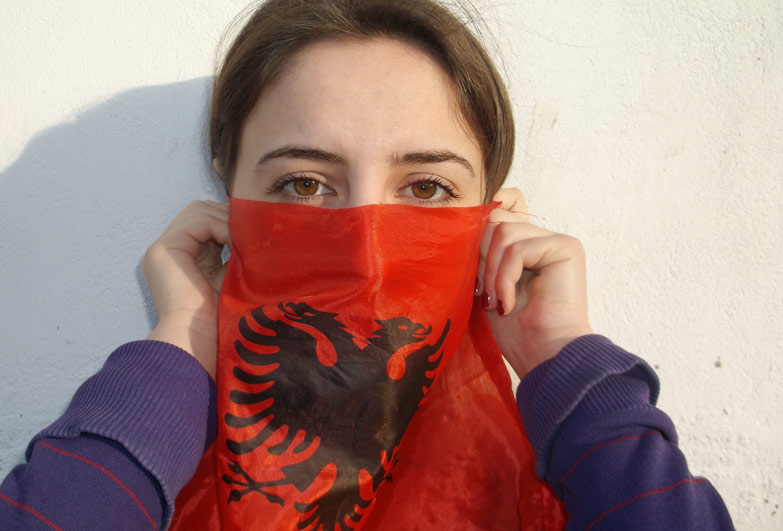Anti-Slavery International UK and Europe Programme Manager Klara Skrivankova: photographs taken by trafficked women and their voices highlight the need to protect all trafficking victims.

This article is part of the main feature in our latest magazine the Reporter. Also read:
- Gallery: Voice of Freedom – world seen by trafficked women.
- Founder of Voice of Freedom on her experience working with trafficked women.
When she was five, ‘Bibi’ was by left by her mother in a children’s home in her native Nigeria. When she was sixteen, the woman who ran the house trafficked her to France. ‘Bibi’ managed to escape from her captors and made it to the UK, but was arrested and put into detention and was facing deportation.
In the end she wasn’t deported, and she received help from an organisation helping trafficked women. Her troubles didn’t end there, she was provided with accommodation where bullying and violence were commonplace.
“It is striking how little help these women get from the British authorities.”
Her trafficking experience left her extremely traumatised and everyday life remains a struggle.
‘Bibi’ is one of a group of remarkable women whose stories and talents we are able to present in this Reporter thanks to the Voice of Freedom project, in which the women, supported by the Helen Bamber Foundation, one of Anti-Slavery’s partners, were given cameras to document their lives.
The result is a remarkable set of insightful and powerful images that tell us stories of great daily struggle, but most of all of courage and strength. What is especially unusual is to see real voices of trafficked people, rather than those related by a journalist or an NGO, giving us an intimate insight into the lives of those who suffered abuse but fight to return to normality against all odds.
“I thought trafficking was when somebody point a gun to your head and say, “come with me or I kill you” but my situation wasn’t that way. It’s even worse – the emotional insults… turning you into someone else… Looking over your shoulder all the time, be scared, it’s not a nice feeling.’’
Patterns of trafficking, but what comes after?
‘Bibi’s’ story is not an exception. Stories of women who were trafficked follow remarkably similar patterns.
They often come from a very vulnerable background of poverty and lack of education and opportunities. They come across someone who abuses their vulnerability to gain their trust and uses it to exploit them. Trauma of their abuse stays with them for the rest of their lives.
As one of the women on Voice of Freedom said ‘I thought trafficking was when somebody point a gun to your head and say, “come with me or I kill you”’ but my situation wasn’t that way. It’s even worse – the emotional insults… turning you into someone else… Looking over your shoulder all the time, be scared, it’s not a nice feeling.’
The pattern of what happens after the women manage to escape their captors is also remarkably similar.
Often what comes first is an arrest, often on immigration grounds.
If they’re lucky they come across a specialist support organisation. Application for asylum, often the only way victims can obtain long-term secure status, and years of waiting in substandard accommodation, where overcrowding, violence, bullying and fear are an everyday occurrence.
All this whilst they start to piece their lives together: meet new partners, get education that often was not available to them earlier on, get jobs and start some sort of normality.
It is striking how little help these women get from the British authorities. What’s more, it is astonishing how many hurdles created by those authorities they have to overcome.
The fight and determination to overcome the obstacles a regular person wouldn’t even dream of is all the more commendable.

Victim protection needed
The stories of trafficked women bring to the fore what Anti-Slavery has been campaigning for for years, namely a comprehensive system of victim protection guaranteed in law.
Many are not identified as victims,often simply because they are not believed. Support for slavery victims is patchy, as there are no legally defined minimum standards of protection and support and long-term care is rarely provided. Most of them have to move out of a safe house without any further support shortly after arriving there.
The authorities often treat them as immigration offenders rather than victims of a serious crime.
“By failing to guarantee protection for victims of slavery, the UK perpetuates the problem.”
Regulating the immigration status of many survivors takes years, whilst with barely any support the victims often become destitute and struggle to make ends meet.
Being in such vulnerable situation, it is no surprise that victims are at risk of being exploited again. By failing to guarantee protection for victims of slavery, the UK perpetuates the problem.
What we do to change it
- We’re working to put pressure on the Government to implement a comprehensive system to protect all victims of slavery and improve the current system. We uncover new trends and forms of trafficking in the UK and support individual legal cases.
- We also lead the Anti-Trafficking Monitoring Group, a coalition of organisations monitoring the implementation of European anti-slavery legislation by the British Government.